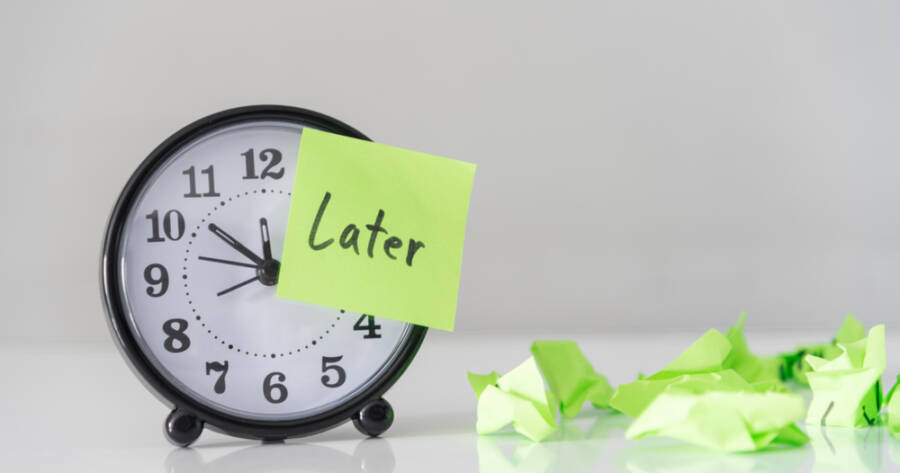Putting things off may feel harmless, but it often leads to more stress than relief. Procrastination can disguise itself as “planning” or “waiting for motivation,” when in reality it keeps you from momentum and growth. The good news is that you can retrain your brain to act instead of avoid. Small, consistent strategies can help you push past hesitation and rediscover focus. With the right mindset, progress becomes easier and much more satisfying!
Identify Why You’re Delaying
Before fixing procrastination, it’s crucial to understand why it happens. Some people avoid tasks out of fear—fear of failure, perfectionism, or judgment. Others delay because a project feels too big or unclear. Identifying the real reason behind your hesitation gives you the power to tackle it directly.
Start by observing patterns. What types of tasks do you delay most often? Once you see the triggers, you can reframe your mindset and remove the emotional weight from the task. Awareness is always the first step toward change.
Break Big Goals Into Micro Tasks
Large goals can feel paralyzing when viewed as a single mountain to climb. Breaking them down into smaller, manageable parts transforms something overwhelming into something doable. Each micro task becomes a short, achievable assignment that sparks progress.
Set a timer for short bursts of work, like the Pomodoro Technique’s 25-minute sessions. Celebrate the completion of each mini milestone—it builds momentum and confidence. Progress is addictive once you start tracking it in visible ways.
Create a Workspace That Encourages Action
Environment shapes behavior. A cluttered desk or chaotic digital workspace invites distraction. Designing a clean, organized space can make it easier to start and stay focused. Keep only what you need within reach—your laptop, notes, and a drink—and remove unnecessary items.
Lighting also matters. Natural light promotes energy, while dim or harsh lighting can drain focus. When your surroundings support clarity, your brain follows. The best workspaces invite action rather than avoidance.
Top Focus Techniques To Try
Building focus is like training a muscle—it strengthens with consistency. Start with the two-minute rule: if something takes less than two minutes, do it immediately. It prevents small tasks from piling up and reduces mental clutter.
You can also try time-blocking, dedicating specific hours to one task type instead of multitasking. Another powerful method is deep work, where you eliminate all distractions for a set period. Use noise-canceling headphones, turn off notifications, and give your full attention to one thing. Over time, focus becomes not just a skill, but a habit of excellence.
Replace Motivation With Routine
Waiting for motivation is one of procrastination’s biggest traps. Instead, rely on structure. Create a consistent schedule that makes action automatic. When certain times of day are reserved for specific types of work, starting becomes easier because it’s part of your routine, not a debate.
Habits remove the need for willpower. Pair this with cues—like sitting at your desk at the same hour each morning—to signal your brain it’s time to focus. Structure doesn’t limit freedom; it protects it.
Reward Progress, Not Perfection
Many procrastinators delay work out of perfectionism. By setting unrealistic standards, they avoid starting altogether. Shifting your focus from “doing it perfectly” to “doing it consistently” can break the cycle.
Set small rewards for yourself after making progress—a short walk, a coffee, or time to scroll guilt-free. Rewarding consistency trains your brain to associate action with satisfaction rather than stress. Imperfect progress always beats perfect delay.
Learn To Forgive Yourself
Self-blame makes procrastination worse. When you dwell on what you haven’t done, you drain energy needed to move forward. Acknowledge your patterns without judgment, then choose to start fresh.
Progress is a process, not a single victory. Each attempt to improve builds resilience and self-awareness. Forgiveness doesn’t excuse procrastination—it clears the space for genuine change.
Turning Procrastination Into Progress
The most effective fix for procrastination isn’t speed—it’s self-understanding. Once you know your habits and replace guilt with strategy, every task becomes more approachable. Small steps transform into steady momentum, and steady momentum creates trust in yourself. Over time, the act of starting becomes second nature. Every time you choose action over avoidance, you prove you’re capable of moving forward with confidence.

